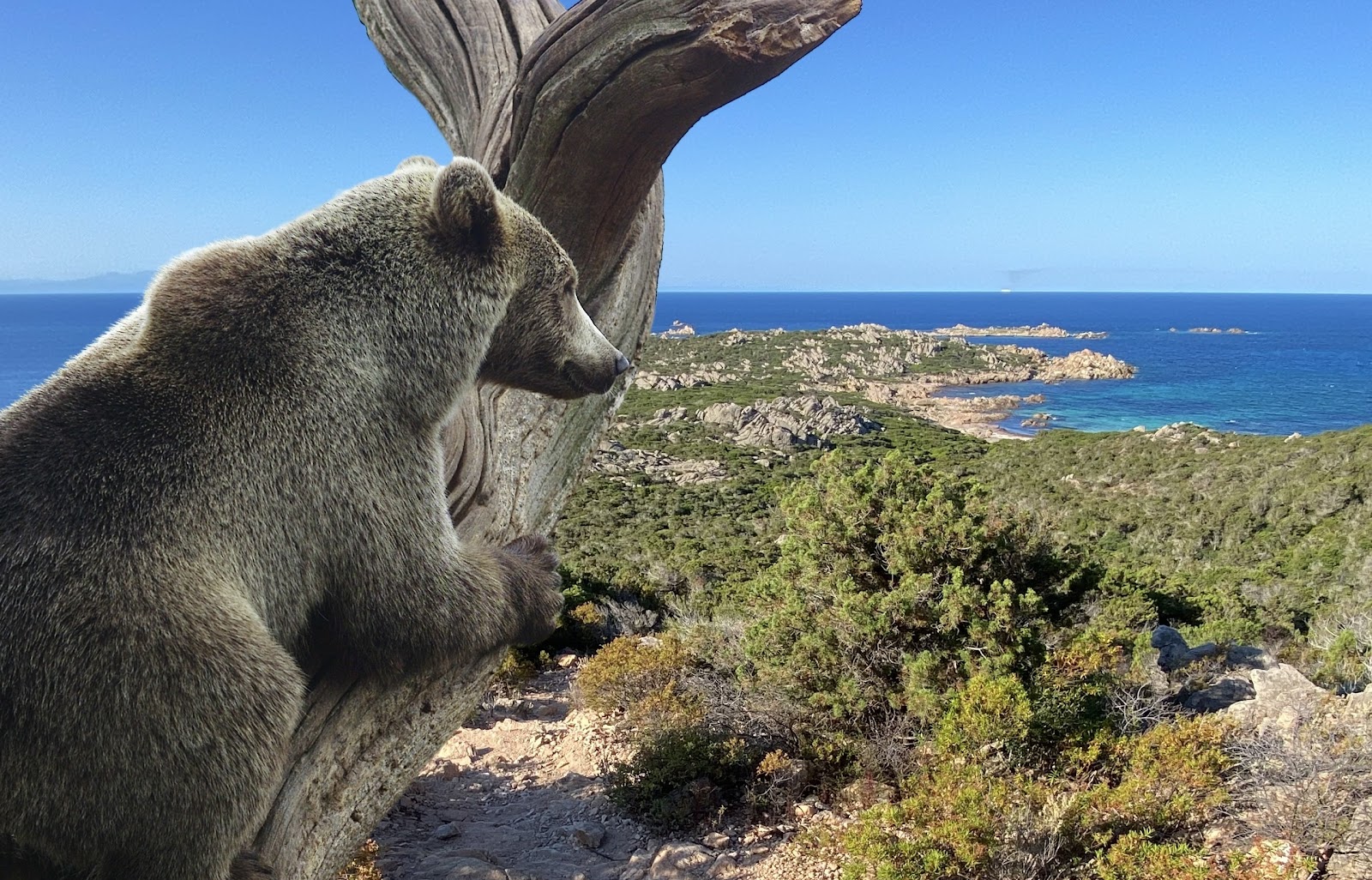Imagine a bear roaming along the Corsican coastline, looking for a refreshing bath at sea, suddenly emerging from the Mediterranean maquis in front of hundreds of astonished tourists in a crowded beach! Sounds like a horror movie, but may have been a rather realistic scenario. It's a nearly forgotten story, the one of the past invasion of bears in Corsica. But given the growing concern for the conflict between people and large predators in the old continent, it may be worth to remind what happened only a few centuries ago, as the natural history of the island might have been rather different.
 |
| A bear roaming in Corsica some centuries ago © Photo(montage): Scalera/Cedrone |
Corsica is a beautiful French island which lies in the middle of the Mediterranean basin, only a few kilometers north of Sardinia, Italy. The island - which is the fourth-largest in the Mediterranean, after Sicily, Sardinia and Cyprus - is renowned not only for the fine sandy beaches and turquoise waters, but also for the variegated landscape covered by spectacular forests, mostly made up of conifers and oaks, stretching over more than half of the island's surface. The steep mountains, with the highest peak reaching over 2700 m, are crossed by a multitude of enchanting small streams. A perfect place for bears!
Luckily, there are no large carnivores in Corsica today, and tourists can enjoy the wilderness of the island during their adventurous hikes that transverse the mountains of the island, as well as the beautiful beaches scattered across the 1000 kilometers of coastline. But things were looking definitely different for the local inhabitants of a few centuries ago. Apparently, at the end of the Middle Ages, brown bears have been roaming through the island territory, some time between the 15th and the 17th century. Brown bears were possibly introduced as a consequence of the release or escape of tamed animals, though the exact origin is not yet known. Some doubts were also expressed about the alien status of bears in Corsica, supporting the idea that the species may be indigenous, but the lack of documented evidence of the species in fossils and documents before the 15th centuries support the hypothesis of an alien origin of bears in Corsica. Notably, assessing the actual pathway of alien species retroactively is not an easy task, and may stimulate bizzarre speculations. For example, in this case one curious hypotesis was made that a galley carrying bears for circus games, from North Africa to Rome, shipwrecked near the island.
The presence of this plantigrade seems well documented for some 200 years thanks to historic texts and fossil remains, however it is likely that brown bears were always very rare in the island, and locals may have amplified rumors on actual frequency of encounters and attacks on sheep herds, just to get permissions from authorities to use weapons for self defense (from beasts). In any case, suddenly, some time around the XVI century, the bears disappeared from the island. No occurrences were ever confirmed since then.
The story seems to reflect the happy ending of the symbolic metaphorical novel The Bears' Famous Invasion of Sicily by the Italian renowned writer Dino Buzzati (his works include the novel The Tartar Steppe, which brought him worldwide fame). Otherwise, it would be not difficult to imagine the kind of conflicts that could be generated if bears would be still roaming around in such a paradise island.
